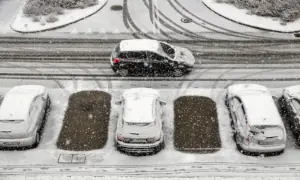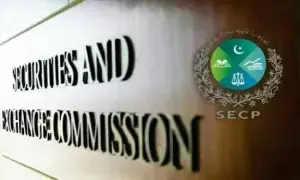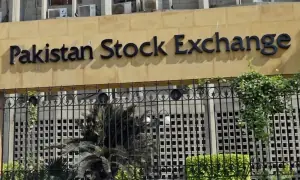Grievances mount in Europe with future wealth in doubt
4 min readIn separate speeches last year, the leaders of France and Germany warned their citizens of hard times ahead as the global economy encountered challenges ranging from trade conflicts through to all-out war.
French President Emmanuel Macron declared the “age of abundance” over; for Germany’s Olaf Scholz, three decades of unfettered free trade that had delivered strong economic growth with low inflation were now drawing to a close.
But if the aim was to prepare their publics for future sacrifices, their messages have fallen on deaf ears - as shown by the biggest German strikes over pay in decades and widespread French anger at Macron’s plan to raise the retirement age.
Instead, the protests suggest many Europeans have concluded that if the economic pie is shrinking, then what lies ahead is a fight to prevent their share getting even smaller.
“If someone has to pay the cost, then people are fighting to not have to pay the cost,” said Gregory Claeys, a senior fellow specialising in economic governance and public policy at Brussels-based economic think tank Bruegel.
From the growing expense of caring for ageing populations and tackling climate change to the knock-on impacts of military and trade conflicts, many of Europe’s problems are similar to those facing all industrialised economies.
But they pose more immediate challenges to a region which funds extensive welfare states, prides itself on being the world’s largest trading bloc, and whose over-reliance on Russia for fossil fuel-based energy was exposed by the Ukraine war.
That year-old conflict, the COVID-19 pandemic and an inflation-fuelled cost of living crisis have now brought things to a head.
While many low-income U.S. workers discovered that post-lockdown labour shortages gave them leverage to negotiate solid wage increases, European workers initially prioritised job security over higher pay.
France, Germany and other European countries offset some of the strain on households with generous furlough schemes, followed up with a range of support measures to help consumers cope with inflation and, above all, surging prices for fuel.
It has since become clearer that many companies were meanwhile rebuilding their margins on price hikes in a way that was exacerbating inflation - something policymakers at the European Central Bank now acknowledge.
ALL IN IT TOGETHER?
Such support schemes cost the public purse, inflaming budget deficits and making governments less willing to grant hefty pay increases to the public sector workers now leading industrial action in Germany, Britain and elsewhere.
“I do think there is a growing awareness that low-income earners have fallen further behind and that the wage gap in Germany has been widening,” said Carsten Brzeski, chief economist for bank ING Germany, adding he saw “increasing tensions” between low- and high-earners across Europe.
The untargeted nature of some of the measures brought in to alleviate inflation - for example France’s blanket subsidies on fuel at the petrol pump - in some cases benefited comfortably-off consumers more than those struggling to get by.
Meanwhile the bump in corporate profits and shareholder gains started to aggravate a sense of inequality.
“The mantra that we are all in it together is blatantly untrue and workers are not going to put up with that kind of rhetoric,” said Owen Tudor, deputy head of the International Trade Union Confederation.
Tudor, echoing union arguments across the region, insists Europe generates enough wealth to sustain comprehensive pension systems and prevent public sector wages from sliding behind inflation - as long as governments take the political step of redistributing that wealth, for example through tax increases.
Few have proven ready to do so in recent years for fear of electoral defeat. The other option - allowing debt to rise further - looks tricky: European Union limits on deficits that were suspended after the pandemic will re-apply from 2024.
More strikes loom in Germany unless arbitration efforts make progress, and French walkouts that are hitting refineries and other parts of the economy continue to see strong public support, with a new national day of protest set for April 6.
The Macron and Scholz governments are seeking ways to allay the grievances, with Macron in particular suffering damage to his already weak personal popularity.
If the discontent grows, more radical parties increasingly see an opportunity to profit - particularly in France, where Macron’s rise to power in 2017 at the head of a new centrist movement came at the expense of established parties.
“Macron has eaten the centre-left and the centre-right,” said Bruegel’s Claeys. “The only alternative that people might have is the extreme-right.”
For the latest news, follow us on Twitter @Aaj_Urdu. We are also on Facebook, Instagram and YouTube.


























Comments are closed on this story.